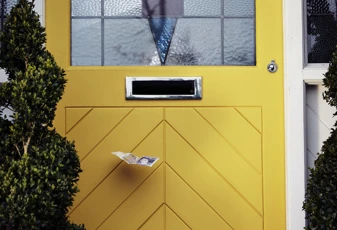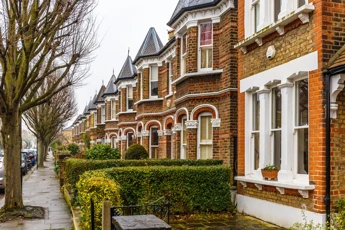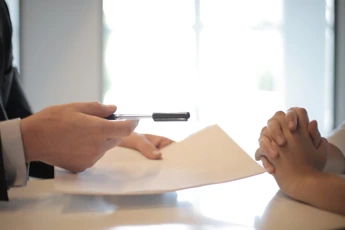Shared Ownership offers an opportunity to buy an affordable home. In essence, it involves purchasing a portion and renting another portion of a residence.
How would you feel about finally having a place to call your own? What’s more, what if you could put down a smaller deposit to make this dream a reality? If you find this concept too good to be true, Shared Ownership might just be the solution you've been searching for.
What does Shared Ownership mean?
Shared Ownership involves purchasing a share of a house while renting the remaining portion. This arrangement allows for a smaller mortgage, thus reducing the amount of deposit required, making homeownership more attainable.
If you're a renter and are concerned about the security this provides in the long-term, Shared Ownership offers a solution. This is because you’ll become a co-owner, a crucial aspect for many individuals.
Do I have to share a house with others?
Despite the name, you won't have to share a house with others. Shared Ownership refers to sharing ownership with a housing association, not other occupants.
The ins and outs of Shared Ownership
When opting for Shared Ownership, you’ll buy a share in a house or apartment ranging from 25% to 75% of the property's value, based on your mortgage lender's assessment of affordability. Key points to consider include:
You only require a mortgage for the share you're purchasing
You’re responsible for both the mortgage on your share and rent on the remainder, the latter of which is payable to the housing association
Due to your mortgage covering only your portion of the house, your deposit can be significantly lower than if you were buying the entire property.
You’ll receive a lease detailing your share, the length of your tenancy (typically 125 years), monthly rental obligations, and your responsibilities as a resident. It's essential to thoroughly review the lease and consult with your solicitor to address any queries.
What are the costs involved?
Costs include a 5% deposit based on your share, stamp duty on your share's value, and legal fees for your solicitor. These expenses depend on the property's purchase price and the deposit/rental amounts that you pay.
Who qualifies for Shared Ownership?
Shared Ownership is not limited to first time buyers. It’s actually available to anyone who meets the following criteria:
Able to provide a 5-10% deposit
Does not own another property
Household income of £80,000 or less (under £90,000 in London)
Good credit history and the ability to cover associated costs
Are there limitations on the type of property I can buy?
Shared Ownership schemes apply to new builds or resales from existing Shared Ownership homeowners. Housing associations can provide property listings for you to review.
Staircasing
Staircasing allows you to increase your share of the property incrementally until you own it outright. Some housing associations may have caps on the shares you can purchase, so verify this beforehand. As you increase your share, your rent will be recalculated and reduced accordingly.
It’s worth noting that increasing your share is optional. You’re under no obligation to do so, and the amount can remain as initially agreed.
Additional considerations
You can personalise your space with decorations and artwork, but substantial renovation plans require approval from the housing association
Pet ownership may be subject to lease terms. Houses are usually fine, but rules can vary for flats or apartments. Make sure to check with your lease beforehand
You can sell your share to another Shared Ownership buyer through the housing association, or independently if you own 100% of the property.
Do your homework
It's essential to conduct thorough research, particularly regarding Shared Ownership properties in rural areas, as different rules may apply. Check with the housing association when viewing homes in these locations.
For more information, visit the Shared Ownership website or reach out to our mortgage advisers to discuss whether a Shared Ownership mortgage could work for you.
Want to talk mortgages?
Get real advice from real people. From mortgages to protection insurance, we’re here for you. Talk to us today and let’s work together to find a mortgage that’s right for you.
Important information
Your home may be repossessed if you do not keep up repayments on your mortgage. There may be a fee for mortgage advice. The actual amount you pay will depend upon your circumstances. The fee is up to 1%, but a typical fee is £295. Fee free advice for all new build purchases.
Read our other articles
Top ten money-saving tips
Saving money makes opening a savings account a bit simpler and helps your money go further.
Shared Ownership scheme uncovered
Fancy owning your home, but making a more modest deposit?
How to raise your credit rating
Your credit score has a significant influence on how you get access to credit lines, such as loans, credit cards, and mortgages.
What you should know about 95% mortgages
If you have a small deposit saved up, you may be able to qualify for a 95% mortgage.
What happens to your property after your divorce? FAQs
Following a divorce, many couples have numerous questions about their property, and what will happen now that they are breaking up.
What your mortgage adviser needs for your appointment
The more prepared you are for your mortgage appointment, the better we’ll be able to assist you.
Understanding mortgage affordability assessments
When applying for a mortgage, you’ll need to undergo an affordability assessment to ensure you can meet your monthly repayments with ease.
Everything you need to know about your mortgage appointment
Are you stepping into the world of homebuying for the first time? Maybe it’s been a while since you last spoke to an adviser, and you aren’t sure what to expect? We’ve got you covered…








